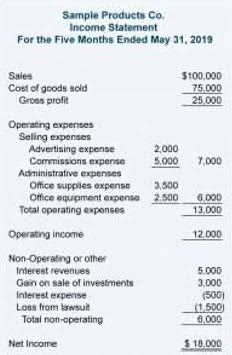
As a result, their businesses will not only enjoy more efficient workflows and reap more useful insights from their accounting processes, but help strengthen their own resiliency, agility and competitive footing. The next generation of accounting technology delivers the latest in artificial intelligence, cognitive computing, and technology used in accounting machine learning technologies. With technology impacting accounting in so many ways, forward-thinking firms are developing strategies to embrace these accounting technology trends and use them to engage younger generations in the workforce. Over the past decade, technology has driven a profound shift in the way accountants work.

Additional benefits include greater price certainty and boosted efficiency for all accountants, who can directly tie their work to the price they charge. Just as an example, all public US companies at the start of 2023 absorbed a 1% excise tax hike on the fair market value of stock repurchases. Add in the potential for an international law applying to your business, and the potential for a cataclysmic error increases. 44% of retail and restaurant businesses, for example, planned to upgrade their restaurant point of sale systems in 2020.
Age of Digital Transformation — A.D. 1900 – A.D. 2010
For instance, a member of the accounting team could have critical details like discount deadlines, payment schedules and possible savings at their fingertips. When deployed effectively, intuitive AI doesn’t just automate the process but also infuses intelligence and responsiveness into the workflow, enhancing both efficiency and financial decision-making. While it was necessary to keep documents, papers, and receipts stored in order to keep track of finances and expenses of a business, cloud computing allows a business to go completely paperless. With this option, you can easily upload and store your documents or important receipts allowing you to access them at any time from anywhere. This gives the business the chance to save a lot of money in terms of paper, ink, printing machines, and storage space as there is no need to keep these documents saved or print them every time you need to get them approved. Instead, all you need to do is access the document on your cloud and send it over to the person in question.
- However, it’s also worth recognizing that third parties can also expose businesses to conduct, delivery, and reputation risks – so it’s important not to put all of your eggs in a single basket.
- International accounting helps businesses that operate across borders or that want to expand their business to another country.
- Accountants use web browsers to access these applications, and all of the data is automatically backed up in the cloud.4 This can also be referred to as cloud computing.
- This one’s a pretty simple tip when it comes to accounting technology, but obviously, before you can handle your accounting work on the go, you’ll want to make sure you have the right apps on your smartphone and/or tablet.
- They also shouldn’t really be carried out in isolation – automation should be a project for an entire enterprise, not just a lone accountant.
- You will work in an office environment with air conditioning—no manual labor or dirt under your fingernails.
- Another advantage of mobile accounting is that it has made it possible for an accountant to always be able to reach their files, making it easier to communicate with their clients at any time.
To prepare for a smooth transition, work with your information technology provider to ensure their products are optimal for your firm. Typically, they will provide recommended system requirements necessary for optimal performance. The use of APIs in accounting automation is critical in creating a custom solution tailored to your firm’s unique compliance processes.
AI and Taxation: What professionals need to know
At Rubino, we use technology to streamline our accounting services and provide the best financial assistance to our clients. We help small businesses, nonprofit organizations, government contractors, and clients in various other industries manage complex accounting tasks, including audits and cash flow management. As the accounting sector continues to evolve, we stay on top of industry trends and integrate new solutions into our services. Today, accountants need access to thoroughly integrated and up to date tax research and editorial insight to provide clear and meaningful guidance to clients. Backed by machine learning and artificial intelligence (AI), accounting technology can help accountants at all levels find answers to tough questions and support clients with confidence. Instead of having everything on your computer at work, there are many technological solutions that allow accountants to access important data from absolutely anywhere.
This can be a great way to ensure diversity within your company while also maintaining productivity. From increasing accuracy to optimizing tax workflow to freeing up time for more value-added activities, technology has transformed the accounting industry—for the better. Seeing your competitors leverage technology to streamline processes, improve client relationships, and deliver more sophisticated services is a red flag. You may not realize it now, but falling behind tech-wise will probably hinder your competitiveness in the long run.
Communication platforms
With automated accounting, professionals will be able to utilize the latest technologies that highlight anomalies or patterns without manual data input. As you contemplate tech staff, it is important to note that a significant portion of today’s accounting curriculum is dedicated to teaching aspiring accountants how to use current technology. And many graduates are likely looking forward to learning even more advanced technology on the job.
The right offshore staffing solution provider agency can fill needed roles at your business. Outsourcing offers many of the same benefits as third-party involvement, but passes the saved value on to your company rather than simply to your clients. You’ll be able to pick out a staffing provider that offers the talent you need, allowing your small team the increased time needed to focus on its core needs.
Accountants are using new channels to find and connect with clients.
Accountants work with many clients, and they all have to gather lots of information and documents. Data gathering tools make this process much simpler thanks to tailored document collection templates and automated reminders. Traditional practices could hardly cope with this challenge, but contemporary firms do it successfully thanks to accounting technologies. In this post, we’ll explain the basic types of technologies in accounting, as well as their benefits and challenges. Accounting is a generic term covering many different bookkeeping and financial reporting areas.
- Use of data analytics also can improve the effectiveness of an audit, as testing an entire population can expose problems that could be missed with an approach that uses sampling.
- Accounting automation technology will allow processes or procedures to be completed with minimal human assistance.
- From enabling online ordering to facilitating remote work to overcoming labor shortages, technology can streamline accounting processes, improve the customer experience, and help scale businesses—even amidst a challenging backdrop.
- The intelligence of things helps finance professionals track ledgers, transactions, and other records in real-time.
- If you’re considering or already pursuing a degree in accounting, technology will be central to your experience.
- Accounting software can work with other key solutions including supply chain management or payroll, all of which can be cloud-based.
These include invoicing, bookkeeping, payroll processing, financial reporting, inventory management, and many more. Ready to start working in an entry-level role as a bookkeeper or accounting specialist? You will be prepared to support any size organization and https://www.bookstime.com/articles/forming-a-corporation-advantages-and-disadvantages make a difference in your accounting department. Cost accounting focuses on tracking and reporting business costs to find ways to reduce them. Management accounting helps businesses make financial decisions by internally analyzing the company’s situation.
Embracing technology in the audit
If your accountants are spending a significant amount of time on routine and repetitive tasks (data entry, reconciliations, report generation, and similar), automation can greatly improve the efficiency of your team. Today, specialized accounting software compiles data from various sources to generate these reports with just a few clicks. This allows accountants to focus more on analyzing the data and providing strategic insights to their clients.
Job titles of the future: carbon accountant – MIT Technology Review
Job titles of the future: carbon accountant.
Posted: Wed, 25 Oct 2023 09:00:00 GMT [source]
And once you’ve solved your disconnected workflow issues, you’ll enjoy the ability to collaborate without version control issues, pass data seamlessly between platforms, and shift your focus to more value-added work. Application Programming Interfaces (APIs) are software code that allow two unrelated systems to “talk to each other” by accessing and using each other’s features or data. Quantum computers will be able to provide services and solve problems that weren’t possible with traditional computers.
Recent Comments